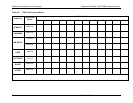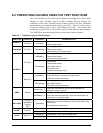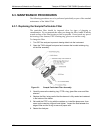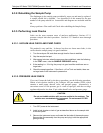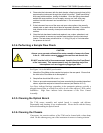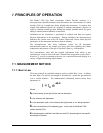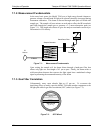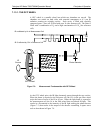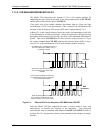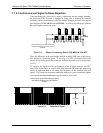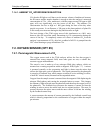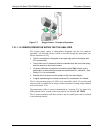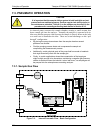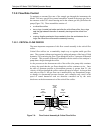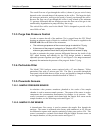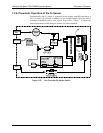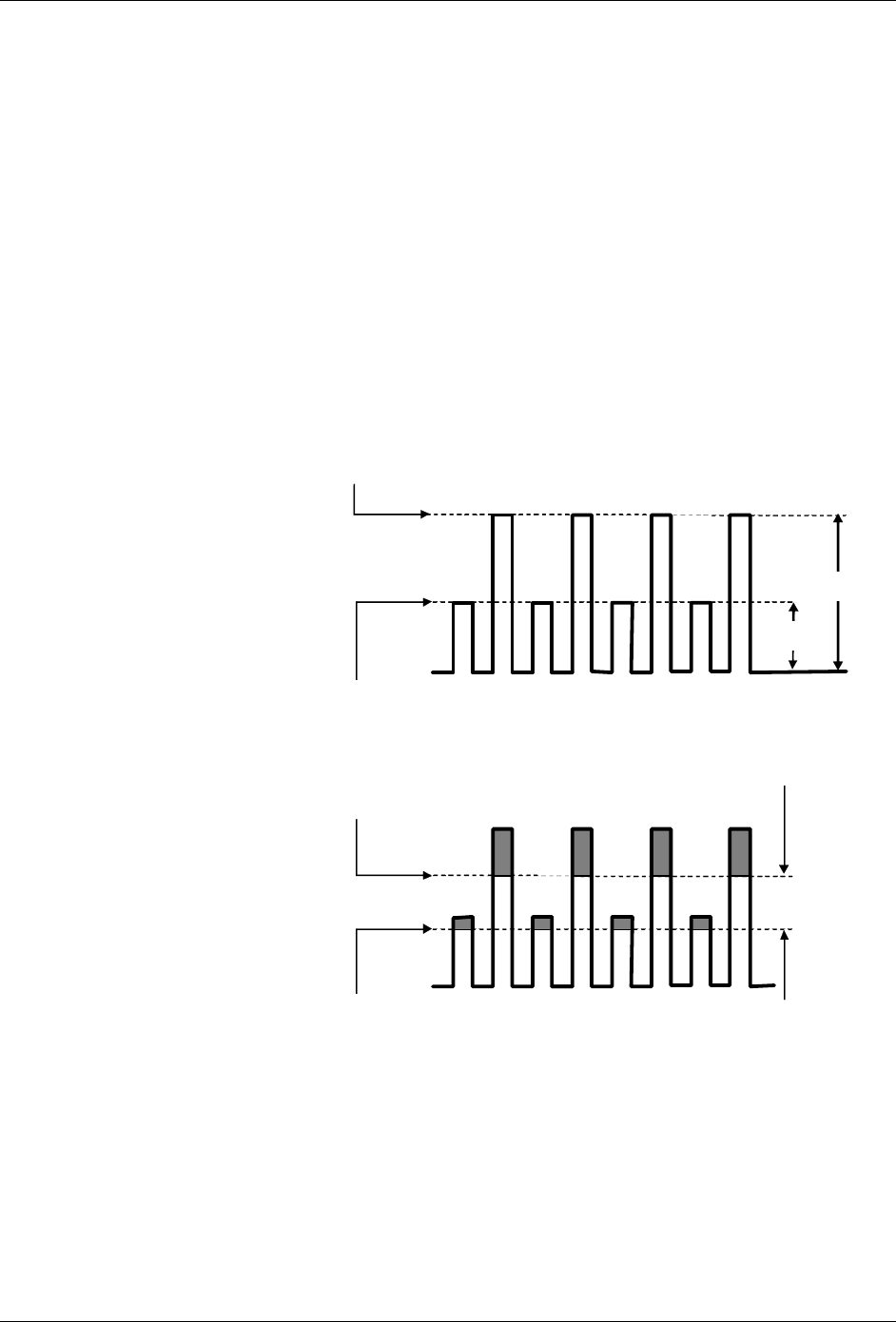
Principles of Operation Teledyne API Model T360/T360M Operation Manual
196
7.1.3.2. THE MEASURE/REFERENCE RATIO
The Model T360 determines the amount of CO
2
in the sample chamber by
computing the ratio between the peak of the measurement pulse (CO2 MEAS)
and the peak of the reference pulse (CO2 REF).
If no gases exist in the sample chamber that absorb light at 4.3μm, the high
concentration of CO2 in the gas mixture of the reference cell will attenuate the
intensity of the IR beam by 60% giving a M/R ratio of approximately 2.4:1.
Adding CO
2
to the sample chamber causes the peaks corresponding to both cells
to be attenuated by a further percentage. Since the intensity of the light passing
through the measurement cell is greater, the effect of this additional attenuation is
greater. This causes CO2 MEAS to be more sensitive to the presence of CO
2
in
the sample chamber than CO2 REF and the ratio between them (M/R) to move
closer to 1:1 as the concentration of CO
2
in the sample chamber increases.
IR unaffected by N
2
in Measurement Cell of
the GFC Wheel and no additional CO
2
in
the Sample Chamber
IR affected by CO
2
in Reference Cell
with no interfering gas in the Sample
Chamber
IR shinning through Measurement Cell of
the GFC Wheel is reduced by additional
CO
2
in the Sample Chamber
IR shining through Reference Cell is
also reduced by additional CO
2
in the
Sample Chamber, but to a lesser extent
M/R
is reduced
CO2 REF
CO2 MEAS
Figure 7-4: Effect of CO2 in the Sample on CO2 MEAS and CO2 REF
Once the Model T360 has computed this ratio, a look-up table is used, with
interpolation, to linearize the response of the instrument. This linearized
concentration value is combined with calibration SLOPE and OFFSET values to
produce the CO
2
concentration which is then normalized for changes in sample
pressure.
07272B DCN6552



